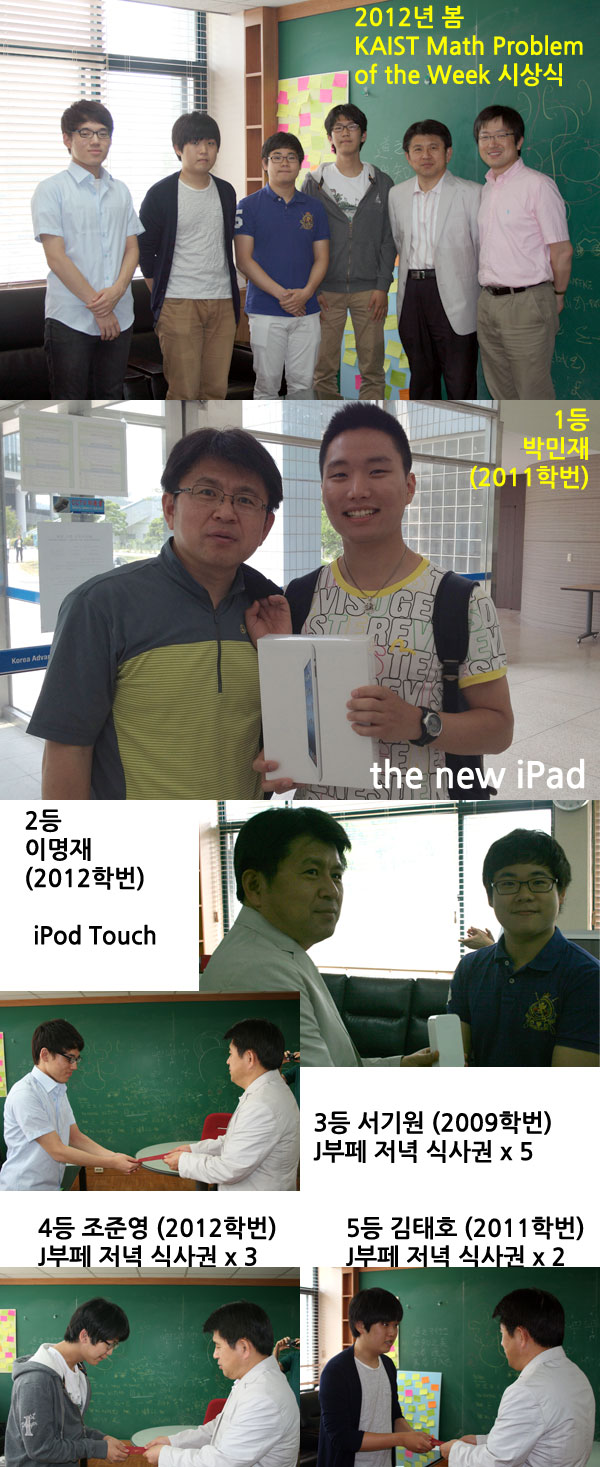Prove that if a finite ring has two elements \(x\) and \(y\) such that \(xy^2=y\), then \( yxy=y\).
The best solution was submitted by Myeongjae Lee (이명재), 2012학번. Congratulations!
Here is Solution of Problem 2012-16.
Alternative solutions were submitted by 김주완 (수리과학과 2010학번, +3), 김지원 (수리과학과 2010학번, +3), 서기원 (수리과학과 2009학번, +3), 김태호 (수리과학과 2011학번, +3), 임현진 (물리학과 2010학번, +3), 박민재 (2011학번, +3), 조상흠 (수리과학과 2010학번, +3), 정우석 (서강대 수학과 2011학번, +3). One incorrect solution (KHK) was submitted.


